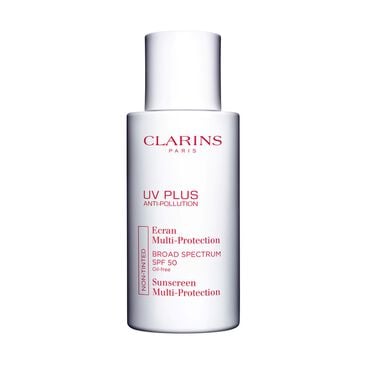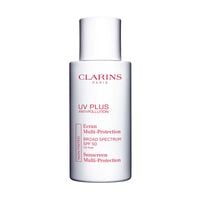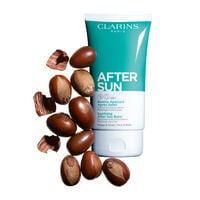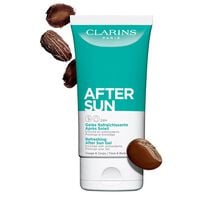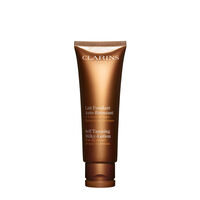How do I choose the best sun protection level for me?
Whether you’re planning to get away on vacation for a while or you’re preparing for some warmer weather, it’s always important to use sunscreen to protect your skin from the visible signs of sun exposure. Here's how to choose the right SPF for your skin.
Whether you’re exercising in the great outdoors, relaxing on a beach, or just going about your daily business, getting some UV rays is always a sure way to improve your mood. The sun seems to have magical mood-enhancing powers and that comes down to the extra Vitamin D and serotonin that it gives to you.
However, as with most things in life, the sun is only good for you in moderation. The right amount of sun and sunscreen means a sun kissed tan, too much and it means bad sunburn, pain, skin damage, and the possibility of skin cancer.
While the most sure-proof way to make sure you don’t get sunburnt is to avoid going outside or to wear clothing that covers up your skin, it’s not always the most practical option. Sunscreen is essential for the times when you can’t cover yourself up or stay indoors.
Not all sunscreen is the same though. There are different SPF levels, better protection for certain skin types, and even SPF sunscreen that contains harmful chemicals. Here’s how to ensure that you find the best sunblock for your skin.
1. What is UV protection?
Before finding the ultimate sun protection for your skin, you should first understand exactly what you are looking into. What does SPF stand for? SPF is short for Sun Protection Factor and this refers to the amount/level of protection that a certain product gives you against UVB rays. The level of SPF is displayed on the product and can range from anything such as SPF 15 to SPF 30, or 50. These numbers simply indicate how long the sun protection will last. In other words, an SPF of 30 means that your skin will be 30 times more protected than it would be if you didn’t apply any SPF sunscreen.
The higher the SPF number, the higher the factor of protection against harmful UV rays. SPF 30 is a high protection in the SPF range, whereas SPF 50 and above are considered to be very high protection.
2. Know your skin type
The best sunscreen for the face and body is dependent not just on SPF factor but also on skin types. If you are wondering what is my skin type? - then just see the signs and symptoms of each type to find out what skin type you may have.
- Oily skin: Our sebaceous glands produce an oil called sebum, which is responsible for clearing out pollutants and blockages within our skin and pores. Unfortunately, hormones and other factors can cause these glands to get ahead of themselves and produce too much sebum. This often results in an oily T-zone, which is the forehead, chin, and nose area. If you have oily skin, you’ll probably have shiny, greasy skin in these areas and your skin could be prone to breakouts, pimples, and blemishes.
- Dry skin: If you suffer from skin that feels tight, rough, flaky, or itchy, then you’ve probably got a dry skin type. Your skin could also look dry, dehydrated, or dull.
- Combination skin: If you’ve got combination skin then you’ll struggle with the symptoms of both oily and dry skin. You’ll tend to notice a shiny, greasy gleam on your forehead, nose, and chin, whilst having dry skin on your cheeks.
- Normal skin: If you’re one of the lucky people to have normal skin, then chances are that you don’t suffer from many skin problems. Your skin isn’t prone to blemishes, breakouts, or pimples; you also won’t suffer from dry skin or flakiness either.
- Sensitive skin: While it varies from individual to individual, sensitive skin is often characterized by discomfort, redness, and dryness. This could be as a result of environmental factors such as temperature or humidity, but can also be because of a reaction to chemicals on the skin. Signs of sensitive skin may not always be visible, however, and having sensitive skin could just mean that you suffer from some minor discomfort.
3. What skin tone do you have?
The tone of your skin isn’t important in the same way for sunscreen as it is for foundation, but it’s still an essential aspect to consider. The tone of your skin is determined by how much melatonin it produces, with darker skin tones having more melatonin than lighter ones.
In general, fair skin or lighter skin tones will be more susceptible to sunburn than dark skin or olive skin. This means that if you have fair skin or light skin, that you must wear sunscreen with a higher SPF and apply it more liberally.
4. What SPF should I choose?
When it comes to choosing the best sunscreen for your skin, you must take your skin type, skin tone, and how long you’ll be exposed to the sun into consideration. If you have fair skin then you should always reach for the highest protection possible, such as an SPF 50+ and try to avoid spending too much time in the sun. However, if you have a dark or olive skin type, then you can use a lower SPF such as 30, but still keep in mind that your skin will get damaged from overexposure to the sun, no matter how dark you are.
Note: Even if you are using the highest factor SPF available, you still shouldn’t stay in the sun for too long. Remember to reapply your sunscreen and if you do need sunburn treatment, then use our After Sun care for effective sunburn relief.
5. Clarins’ Self Tanner
Instead of risking skin damage for that perfect sun kissed look, why don’t you try a self tanner? Clarins’ self tanning lotion is the best self tanner for fair skin and other skin types for a perfect tan without exposing your skin to the risks of sun damage.
Ready to get the perfect sun kissed tan?
Got more questions about Clarins products? Find all the answers you need here.
Did you get the answers you were looking for? Share the love with your friends!
You May Also Like
Related Questions
What is the right sunscreen for me?
Clarins has sun protection for every skin type and occasion. Learn to get a sun-kissed skin tone with the right sunscreen, while decreasing the risk of early aging.
READ MORE
Why are after sun products important?
You can’t undo skin damage caused by the sun – but read on to learn how to minimize its effects and get sunburn relief with Clarins best After Sun Lotion.
READ MORE
How should I treat my sunburn?
So, your sun kissed tan has turned into more of a sunburn. Here are some of the best remedies for sunburn that will teach you how to turn a sunburn into a tan.
READ MORE
How do I get a quick tan?
A Clarins self-tanner can help you get tanned without the sun. How does self tanner work? Read on to understand how self-tanning lotion works, and how to apply it for the best results.
READ MORE
How do I achieve a sun kissed complexion?
Did you know that you can get that sun kissed tan even when the sun isn’t shining? Here’s how Clarins’ self tanner can give you radiant skin throughout the year.
READ MORE
Why does Clarins use plant extracts in its skincare products?
Clarins is dedicated to natural skincare. Find out why we use plant extracts and how we protect the planet and vulnerable global communities.
READ MORE

